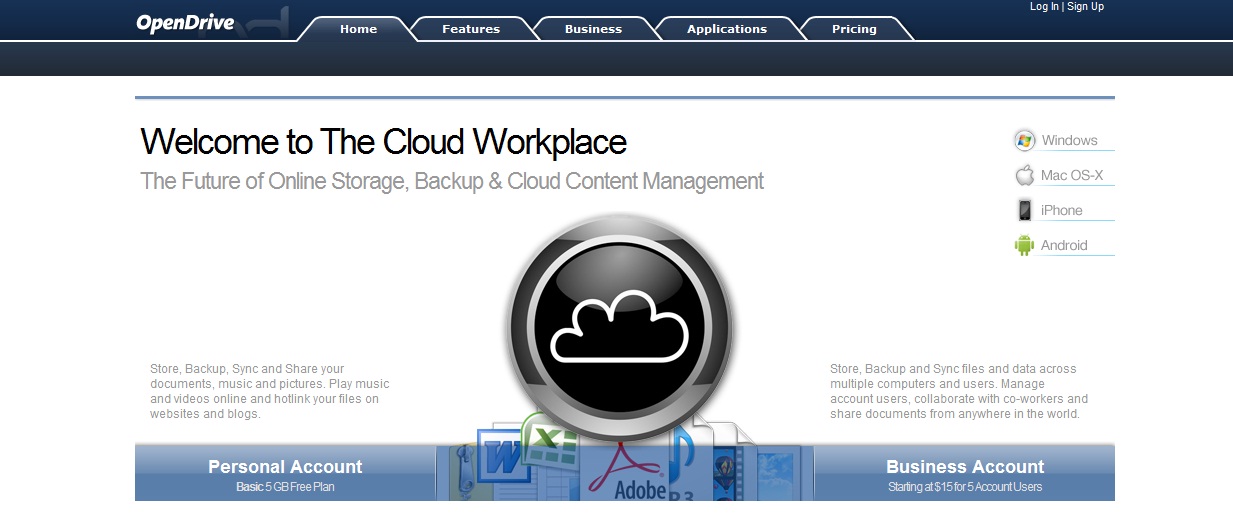


The best backup solution for your small business depends on your unique needs and resources. This is different for each organization and why SysGen evaluates your business needs before prescribing any solutions. The one that works best for your business helps you strategically achieve your business goals while ensuring your operations continue running optimally. How often you take the data offsite will reflect how much data you’ll lose in an emergency.Ĭan be more cost-effective for small to mid-sized companies.Īs you can see, there are many pros and cons when comparing cloud vs in-house backups. May be more susceptible to data loss during disaster situations due to its in-house location. No need to rely on an Internet connection for access to data. Needs space in your office for a rack or server room/closet, in addition to dedicated IT support. No third party has access to your information. Requires a capital investment in hardware and infrastructure. Gives you physical control over your backup. With server backups, you must have an on-site team available to monitor and maintain server health, giving you control over the process and increasing the resources needed to manage your data.Ĭheck out a high-level overview of the pros and cons of in-house backup: PROS AND CONS OF IN-HOUSE BACKUP However, this also means you are at greater risk of physical damage causing data loss. A benefit is that you have direct physical access to your servers when at your business. Server backups use on-premise servers to store your data on your business site. However, if a Datto is used, recovery can occur in minutes. Small data set recovery time is improved.įull data recovery could prove very time-consuming and impactful on systems. If the Internet goes down on your side or on your cloud provider’s side, you won’t have access to any of your information.ĭata can be backed up in the cloud as regularly as 15-minute intervals, minimizing data losses in disaster situations. Organization may have a limit to data that can be stored in the cloud due to storage availability and cost.īackup and restore can be initiated from anywhere, using any computer, tablet, or smartphone. Solutions are often on-demand, so you only pay for what you need. The costs of the data recovery could outweigh the benefits for companies that are not as dependent on uptime and instant recovery. Well-suited to smaller companies that may outgrow storage too quickly.

No need for onsite hardware or capital expenses. Backups are done frequently and periodically to ensure that, in the event of a disaster, there is minimal, if any, downtime or data loss.Ĭheck out a high-level overview of the pros and cons of cloud backups: PROS AND CONS OF CLOUD BACKUP Cloud typically operates with a scalable subscription, as there is no physical hardware to purchase.Ī significant benefit of the cloud is that it requires little management on your business end. This means that if you have internet access, you can access your network’s resources and data. Here are some pros and cons of cloud vs in-house backup to help determine which solution is right for your business: What is Cloud Backup?Ĭloud backups use cloud computing technology to store your data on remote servers accessible through the internet. Cloud adoption is taking hold within small businesses, today 44% of small business use cloud infrastructure for their backups.Īlthough, businesses that aren’t as reliant on uptime or mobility may be more suited to an in-house backup. If your business is heavily reliant on uptime and instant recovery, or have a workforce that is largely mobile, it may be worth paying more for a cloud solution with an uptime and productivity guarantee. Although, the benefits of being in the cloud can far outweigh the costs for some businesses. When it comes to enterprise backup, cloud solutions can be more expensive than in-house options. Enterprise backup does more than just store files, it provides business continuity by keeping corporate operations running. Personal backup is not built for enterprise use: it’s inefficient in recovering large amounts of data, and it’s not made to support applications. This technology comes cheap, but only functions as basic file storage. When an organization begins to look at a backup solution for business, it must first eliminate all personal file-based backup options. It’s also equally as vital to understand the difference between enterprise and personal backup systems. in-house backup will meet corporate needs. If you’re looking at a backup device for your organization, the most important question to ask is whether cloud vs.


 0 kommentar(er)
0 kommentar(er)
